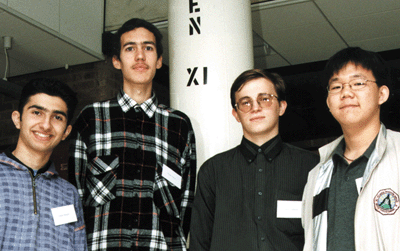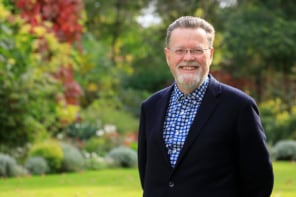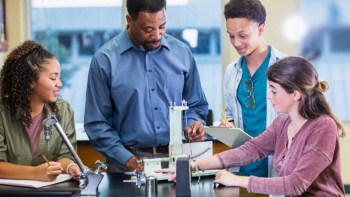A new scheme to attract the brightest young foreign students to the UK has started at Leicester University. Four physics undergraduates who were awarded medals at last year's international physics Olympiad competition held in Leicester have received scholarships to start MPhys degrees at the university. Ken Pounds, head of physics at Leicester, says he is confident that the students will stimulate their fellow undergraduates and he hopes that the scheme can be extended to other British universities in the future.

“I’ve been very impressed by the four students we’ve got,” says Pounds. “They’re extremely bright and can’t help but benefit their fellow undergraduates.” The students, from Moldova, Bulgaria, Azerbaijan and Indonesia, have all entered the degree at the start of the second year and will therefore complete their studies in three years. A scholarship has also been awarded to a student from Finland to start next year.
The scholarships are jointly funded by the British Physics Olympiad Committee and the university. They pay for the students’ air fares as well as their tuition and board for the three years. Pounds say that without such schemes students rarely get the opportunity to come to the UK to study physics because it is so expensive to do so without the national support that tends to favour students studying vocational degrees.
Leicester’s new stars from overseas told PhysicsWeb that the teaching facilities and methods were better in their new university than at home. “Seminars, workshops and experiments are good for people to get real-life practice of working in groups,” says Ismail Hasanov from Azerbaijan. “In my country there are just lectures and examinations.”
Evghenii Gaburov from Moldova says that many of his country’s best scientists have moved to the West following the collapse of the former Soviet Union. As a result, he says, physics education has suffered because there are very few scientists left to teach in the universities. In addition, he says that lecturers are more open in the UK. “If one has a question here it is possible to ask without any problems. But in Moldova it is not so easy to ask a professor or lecturer.”
Halim Kusumaatmaja from Indonesia says he looks forward to living in the UK. “I want to experience studying in a foreign country that has produced famous scientists, from Sir Isaac Newton to Stephen Hawking. And the scholarship is such a good opportunity that you can hardly reject it.” Commenting on his first few weeks at Leicester, he adds that “the weather is strange and life is expensive. But it is not a bad city at all”.
Pounds says he hopes the scheme can be extended. He is currently trying to secure funding from “other sources” to continue the scheme in years to come and perhaps expand it nationwide.



